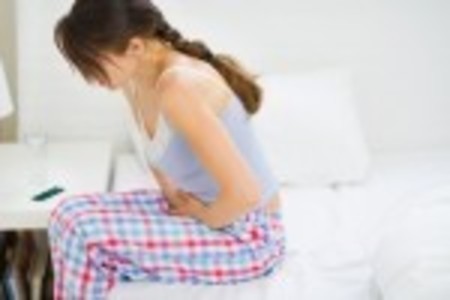Endometriosis is an often misunderstood disorder affecting an estimated 176 million women and adolescents around the world, during what should be the “prime years of their lives” (Hummelshoj). Commonly characterized by symptoms that may be so severe as to interrupt one’s daily routine, whether with periods or at any time during the month, endometriosis accounts for the leading cause of pelvic pain in women of all ages.
Girls and women who suffer primarily during menses only may think, “Of course everyone’s periods are super painful – that’s how it’s supposed to be, right?” This is actually incorrect. Endometriosis is among the most common of diagnoses in adolescents and women with pelvic pain. Unfortunately, due to widespread lack of awareness and disease education, early symptoms are often dismissed as pelvic inflammatory disease or infection, ovarian cysts, appendicitis, IBS, Interstitial Cystitis, “normal” pain, or worse, an “in your head” diagnosis. This contributes to a near-decade delay in proper diagnosis and intervention. The good news is, accurate diagnoses are increasing as doctors and patients alike become better at recognizing the signs of endometriosis, particularly in younger women and girls. Early intervention combining timely diagnosis with proper treatment is essential towards preventing symptom progression and development of infertility (Sanfilippo et al.).
Though many women and girls may experience some discomfort during menstruation, “killer cramps” are NOT normal – despite what the media, friends and even well-intentioned loved ones may tell us. Pain is the body’s way of saying something is wrong. Symptoms that get in the way of school, work, sports, extracurricular or social life are an indication something is awry, as are persistent symptoms at any time of the month.
So What’s Normal?
- minor period discomfort that may even require over the counter medication
- occasional irregular or absent periods, particularly if athletic
- “functional” ovarian cysts
- pain during ovulation
What’s Not Normal?
- severe and incapacitating period pain or pelvic pain at any time of the cycle that interrupts normal routine
- GI discomfort, often but not necessarily around the time of menstruation
- bladder pain or discomfort, during your period or apart from menses
- chronic heavy bleeding and long cycles
- if active, pain with sexual activity (especially upon penetration)
- “chocolate” cysts known as “endometriomas”
- subsequent allergies, food insensitivities or intolerances, chemical sensitivities, fatigue, or autoimmune conditions like thyroid disease may also be present in some women and girls with the disease
Time to See a Doctor
Any ongoing, worsening pain that has no obvious explanation should be evaluated further. “The younger the patient, the more valuable the early evaluation.” (Robert B. Albee, Jr., MD).
Sound Familiar?
- you have pelvic pain during your period or at any time of the month that causes you to miss school, work or activities
- you experience chronic stomach upset such as nausea, diarrhea or constipation
- you have painful urination in absence of infection
- if sexually active, intercourse or sexual activity are painful
- you have family members who have been surgically diagnosed with endometriosis
If you’ve answered yes to any of the above, talk to a trusted nurse or doctor about endometriosis.
Endometriosis is NOT…
- An infection or sexually transmitted disease (“STD”)
- Contagious or preventable
- Caused by abortion
- Caused by backflow periods and thus cured by hysterectomy
- Untreatable!
You cannot “catch” endometriosis, and it isn’t an infection of any sort. You can’t “give” it to anyone else, and there is no absolute prevention. There are treatments that can help, however; and many women and girls live quite well in spite of the disease and are able to control their symptoms long-term through different options. The cornerstone of any effective treatment regimen is quality surgery; most notably, Laparoendoscopic Excision (LAPEX).
Being aware of signs of endometriosis can help get early diagnosis and treatment – critical to effective management. Pain – menstrual or otherwise – that interrupts one’s life is never normal – being aware of abdominopelvic pain, GI and/or urinary distress, and/or pain with sexual activity are significant indicators of endometriosis. The most important step a young woman can take is not trivializing her body’s signals. Pain is a sign that something isn’t right.
Societal taboos and a culture of menstrual misinformation may lead women and girls to think their pain is “in their head”, or they may even be told by others that they are “faking it” to get out of work or class – or that crippling period cramps are “totally normal” and “part of being a female”, but these outdated notions simply aren’t true. If you are experiencing pain or symptoms that get in the way of your life, see your doctor.
About the Authors: The Center for Endometriosis Care is a COEMIG-Designated Center of Excellence in Minimally Invasive Gynecologic Surgery which was founded over two decades ago by renowned laparoscopic excision (LAPEX) pioneer Robert B. Albee, Jr., MD, FACOG, ACGE. The Center is run under the leadership of Medical Director Ken R. Sinervo, MD, FRCSC, ACGE along with a caring, compassionate staff. We continue our efforts as architects of the legacy in gold standard endometriosis care.
Medical Disclaimer: All material on this web site is provided for your information only and may not be construed as, nor should it be a substitute for, professional medical advice. To read more about our health policy see Terms of Use.















